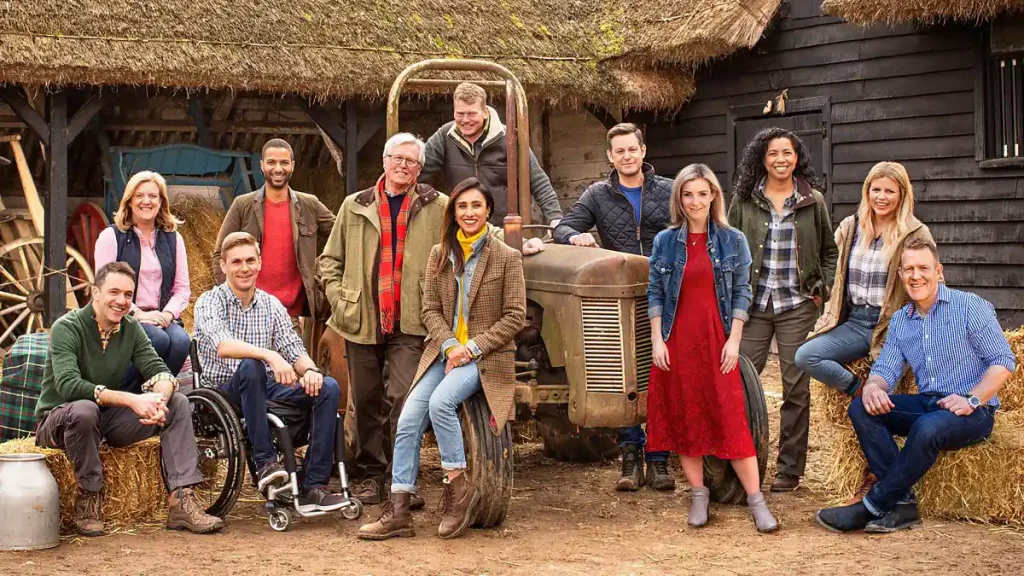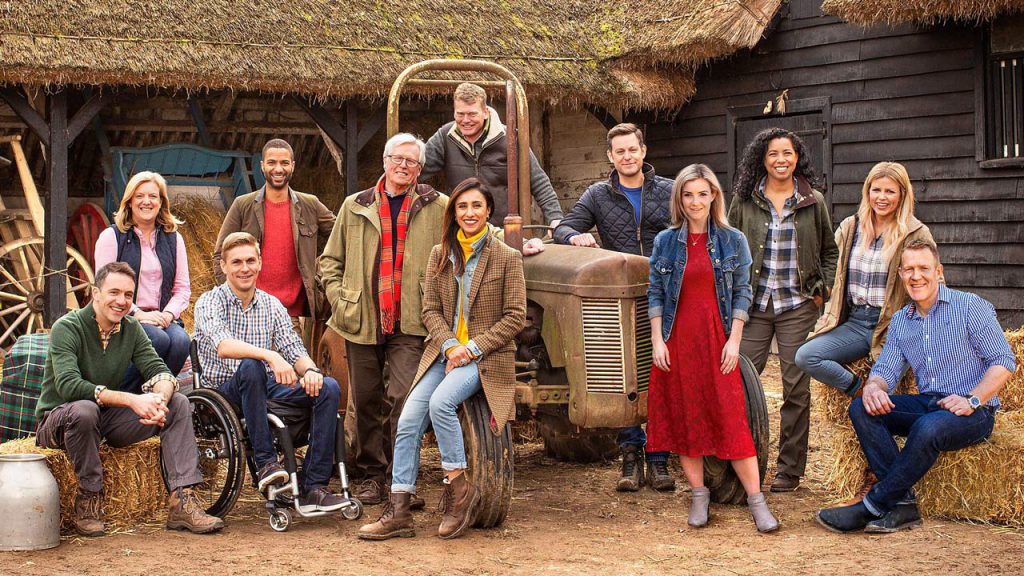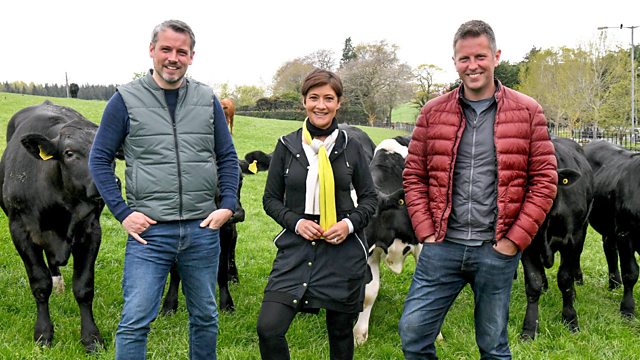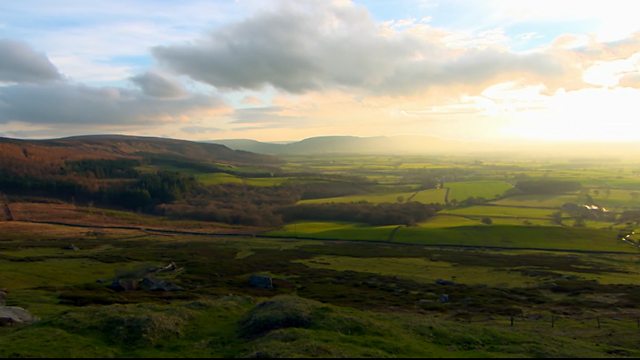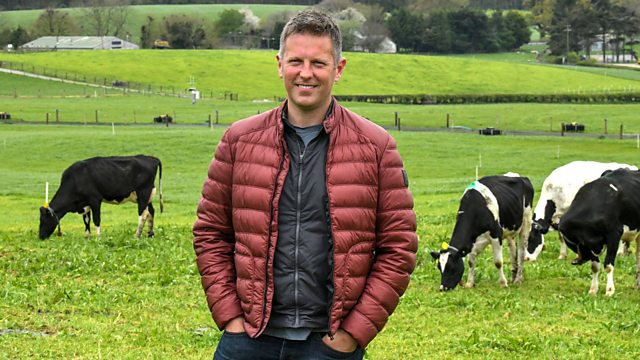Countryfile – Flower Farming – Joe Crowley and Charlotte Smith find themselves in the picturesque town of Spalding, nestled in the heart of south Lincolnshire. Renowned as the historic hub of Britain’s illustrious bulb and flower farming industry, this charming locale beckons our intrepid explorers to delve into its rich heritage, unravel the tapestry of economic changes that growers have weathered, and unveil the trailblazing efforts of a new generation of farmers shaping the future of the UK’s vibrant flower industry.
In their quest to unearth the secrets of floral cultivation, Charlotte Smith embarks on a captivating journey to James Lacey’s family farm. Here, amidst a sprawling sea of vibrant colors, the timeless beauty of sunflowers takes center stage. Charlotte witnesses the meticulous process of production, witnessing firsthand how these beloved blooms are carefully nurtured, expertly picked, and meticulously packed. Captivated by James’ passion for innovation, she eagerly delves into the realm of high-tech harvesting, where cutting-edge techniques are revolutionizing the way farming is approached. Inspired by her experiences, Charlotte even rolls up her sleeves and expertly crafts a stunning bouquet, embodying the essence of nature’s artistry.
Meanwhile, Joe Crowley accompanies Hannah Benson, an enterprising young grower, as she embarks on her mission to deliver meticulously hand-cut blooms to the UK’s oldest flower auction. Immersed in the whirlwind of activity and anticipation, Joe witnesses the bustling atmosphere as buyers and sellers converge to exchange nature’s most exquisite creations. During his expedition, Joe also encounters Nicholas Watts, a visionary who serendipitously stumbled upon the realm of bird seed farming through his unwavering love for flowers and his ardent commitment to protecting wild birds. Their encounter sheds light on the fascinating intersection between floral cultivation and wildlife conservation, showcasing the profound impact that an individual’s passion can have on both nature and society.
But the journey does not end there. Tom Heap, in an exclusive revelation, unveils the groundbreaking results of a revolutionary study. This pioneering research harnesses the power of flower chemicals in animal feed, holding the potential to drastically reduce livestock methane emissions—an extraordinary feat that promises to contribute significantly to our collective efforts in safeguarding our planet. The implications of this discovery are far-reaching, as it highlights the profound impact that innovative thinking and scientific exploration can have on addressing the urgent environmental challenges we face.
Not to be outdone, Adam Henson sets out on his own quest for agricultural transformation. Venturing into the realm of arable fields, he explores the transformative power of tree planting. Delving into the symbiotic relationship between trees and crops, Adam unravels the remarkable potential of this green alliance. By introducing trees into these fields, not only does he unveil the path to revolutionizing small-scale farming income, but he also unravels a sustainable solution to improving soil health and enhancing biodiversity. In this tale of nature’s ingenuity, Adam’s journey illuminates the interconnectedness of our ecosystem and the transformative impact that wise stewardship can have on our lands.
As Joe Crowley and Charlotte Smith bid farewell to Spalding, they leave with hearts brimming with inspiration and awe. The stories they have uncovered and the individuals they have encountered reflect the unwavering spirit of innovation, resilience, and passion that permeates the UK’s flower industry. It is a testament to the indomitable human spirit and the profound beauty that can arise when we join forces with nature, forging a path towards a brighter and more sustainable future for all.
Countryfile – Flower Farming – Spalding: The Historic Heart of Britain’s Bulb and Flower Farming Industry
Nestled in the heart of Lincolnshire, Spalding is more than just a charming market town. It’s the historic hub of Britain’s bulb and flower farming industry, a testament to the country’s rich agricultural heritage. This article will take you on a journey through time, tracing the roots of Spalding’s bulb and flower farming industry and exploring its vibrant present.
The Blossoming of Spalding: A Historical Perspective
The Early Roots of Bulb Farming in Spalding
Bulb farming in Spalding began as a humble venture. The town’s fertile soil and favourable climate made it an ideal location for bulb cultivation. Over the centuries, Spalding’s bulb farming industry weathered numerous challenges, from harsh weather conditions to market fluctuations. Yet, through resilience and innovation, it thrived, contributing significantly to Britain’s agricultural industry.
The early farmers of Spalding were pioneers, experimenting with different bulb varieties and cultivation techniques. They understood the importance of biodiversity and worked tirelessly to preserve it. Their efforts laid the foundation for Spalding’s bulb farming industry, setting the stage for its future growth.
As the industry evolved, so did the town of Spalding. The bulb farms became a defining feature of the town’s landscape, attracting visitors from far and wide. The annual Spalding Flower Parade, which began in the 1950s, showcased the town’s bulb farming heritage and became a major tourist attraction.
The Flowering of an Industry: Spalding’s Role in Britain’s Flower Farming
Parallel to bulb farming, Spalding also witnessed the growth of a flourishing flower farming industry. The same factors that made Spalding suitable for bulb farming also made it ideal for flower cultivation. Over time, the town became synonymous with flower farming, further cementing its status as a hub of Britain’s agricultural industry.
The flower farms of Spalding are a sight to behold. Rows upon rows of colourful blooms stretch as far as the eye can see, painting a vibrant picture against the backdrop of the English countryside. These farms produce a variety of flowers, from classic roses to exotic orchids, catering to a diverse market.
Spalding’s flower farming industry has also made significant contributions to the local economy. It has created jobs, boosted tourism, and promoted local businesses. Moreover, it has played a crucial role in conserving the region’s biodiversity, contributing to its ecological sustainability.
Spalding Today: A Flourishing Hub of Bulb and Flower Farming
Modern Bulb Farming Practices in Spalding
Today, bulb farming in Spalding is a blend of tradition and innovation. While the farmers continue to honour the age-old practices, they also embrace modern technology to enhance productivity and sustainability. From automated planting machines to precision irrigation systems, technology has revolutionized bulb farming in Spalding.
The bulb farms of Spalding are a testament to the town’s resilience and adaptability. They have not only survived but thrived in the face of changing market dynamics and environmental challenges. Their success is a tribute to the hard work and dedication of the farmers, who continue to uphold Spalding’s bulb farming heritage.
The Vibrant Flower Farming Industry of Spalding
The flower farming industry in Spalding continues to flourish. The farms produce a wide variety of flowers, meeting the demands of both domestic and international markets. The industry has also adapted to the changing market trends, introducing new flower varieties and sustainable farming practices.
Spalding’s flower farms are more than just a source of economic prosperity. They are a symbol of the town’s agricultural heritage, a reminder of its historical journey. They represent the town’s commitment to preserving its biodiversity and promoting sustainable agriculture.
Conclusion:
Spalding’s journey from a humble market town to the historic hub of Britain’s bulb and flower farming industry is a story of resilience, innovation, and dedication. Today, Spalding stands as a testament to Britain’s rich agricultural heritage, its landscape adorned with colourful bulb fields and flower farms. As we look to the future, one thing is certain – Spalding will continue to bloom, just like the bulbs and flowers it so lovingly cultivates.
FAQ:
Question: What is the history of bulb farming in Spalding?
Answer: Bulb farming in Spalding has a rich history that dates back several centuries. The fertile soil and favourable climate made it an ideal location for bulb cultivation. Over time, Spalding evolved into a major hub for bulb farming, contributing significantly to Britain’s agricultural industry.
Question: How did Spalding become a hub for Britain’s flower farming industry?
Answer: Spalding’s transformation into a hub for Britain’s flower farming industry was a gradual process. The region’s natural resources, combined with the hard work and innovation of its farmers, led to the growth of a vibrant flower farming industry. Today, Spalding is synonymous with flower farming, producing a wide variety of blooms for both domestic and international markets.
Question: What role does Spalding play in the British bulb and flower farming industry today?
Answer: Today, Spalding continues to be a leading player in Britain’s bulb and flower farming industry. The town’s farms produce a wide variety of bulbs and flowers, catering to diverse market demands. Moreover, Spalding’s bulb and flower farming industry plays a crucial role in the local economy, creating jobs and boosting tourism.
Question: How has technology impacted bulb farming in Spalding?
Answer: Technology has had a significant impact on bulb farming in Spalding. Modern technologies such as automated planting machines and precision irrigation systems have enhanced productivity and sustainability. While the farmers continue to honour traditional farming practices, they also embrace these technological advancements.
Question: What is the future of bulb and flower farming in Spalding?
Answer: The future of bulb and flower farming in Spalding looks promising. The industry continues to adapt to changing market trends and environmental challenges. With a focus on sustainability and biodiversity, Spalding’s bulb and flower farming industry is poised for continued growth and success.
